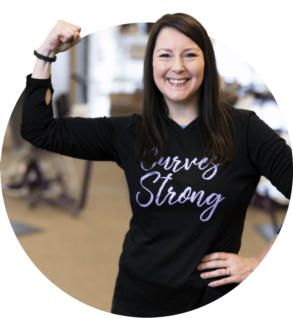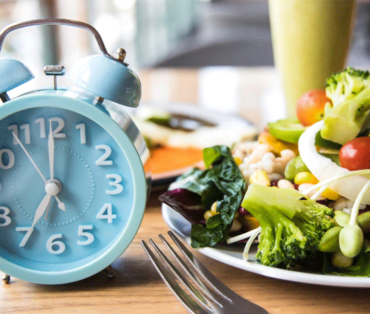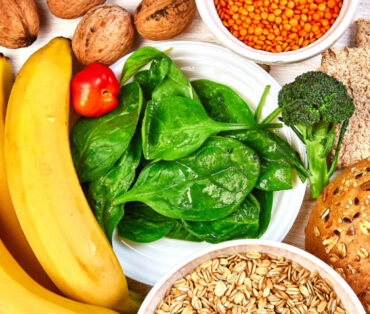Health Benefits of a Plant-Based Diet
Rocker Paul McCartney, tennis champ Martina Navratilova, comedian Ellen Degeneres, and former president Bill Clinton share a health habit that gives them a longevity edge: Each is either vegetarian or vegan, which if you are trying to lose weight, is a smart healthy eating plan. In general, vegetarians tend to be trimmer, have lower cholesterol, and decreased risk of cancer, diabetes, and high blood pressure.
Not interested in going meatless? No problem. Simply eating more fruits and vegetables will help boost your health and lengthen your life. Plus, fruits and veggies are an excellent part of a weight loss eating plan if you are sweating it out with whole body workouts at Curves ladies only gym with the hopes of dropping a few pounds. Check it out:
Greens beat genes.
Eating plenty of greens and other produce as part of a healthy eating plan can alter a gene that predisposes you to heart disease, say researchers participating in the global INTERHEART study1. The researchers, who analyzed the diets of more than 8,100 people of all ethnic groups, found that those who had the gene 9p21, which put them at high risk of heart disease, could turn it off by eating a produce-rich diet—reducing their risk to that of people who don’t have the gene.
Veggies are very good for your heart.
Research2 shows that following a healthy diet high in vegetables helps lower your risk of cardiovascular disease. Vegetables appear to bolster heart health by lowering inflammation, reducing blood pressure, providing antioxidant effects, regulating blood glucose, and lowering levels of blood fats, among other benefits. Some of the most protective veggies include soybeans, sesame, tomatoes, onions, celery, broccoli, lettuce, and asparagus.
Veggies and fruits may curb cancer.
Eating a healthy diet high in fruits and veggies may help reduce your risk of certain cancers. Here are some of the most powerful cancer-fighting superheroes:
Tomatoes and company
Studies show the lycopene3 in tomatoes, as well as pink grapefruit, watermelon, and apricots may help protect against cancers of the stomach, lung, colon, mouth, esophagus, and prostate.
Broccoli and friends
Eating cruciferous veggies4, including broccoli, cauliflower, Brussels sprouts, cabbage, kale, and bok choy, has been linked with a lower cancer risk, specifically cancers of the stomach, esophagus, and head and neck. These vegetables may help prevent cancer by stopping the growth of cancer cells, specifically by regulating a cancer-fighting enzyme.
Among cruciferous vegetables, broccoli5 is an especially nutritious part of a healthy eating plan. It’s rich in vitamin C, carotenoids, fiber, calcium, and folate. Broccoli also provides phytonutrients and sulfurous compounds thought to have anti-cancer properties.
Produce puts a smile on your face.
A study6 from the University of Warwick in England and Dartmouth College found that the more fruits and veggies people ate daily (up to 7 servings), the happier they were and the better their mental health.
If there’s a time to make a better habit of eating fruits and veggies, this is it, when you’re focused on your fitness relationship goals and ready to adopt a healthy meal plan. And it’s the perfect season, when fresh produce is in abundance–fresh equals flavorful!
References:
- PLoS Med: The Effect of Chromosome 9p21 Variants on Cardiovascular Disease
- Nutrients: Effects of Vegetables on Cardiovascular Diseases and Related Mechanisms
- Cancer.Net: Food and Cancer Risk
- Cancer.Net: Food and Cancer Risk
- Healthyeating.org: Nutrition Topics
- ScienceDaily: Fruits and vegetables: Seven-a-day for happiness and mental health







